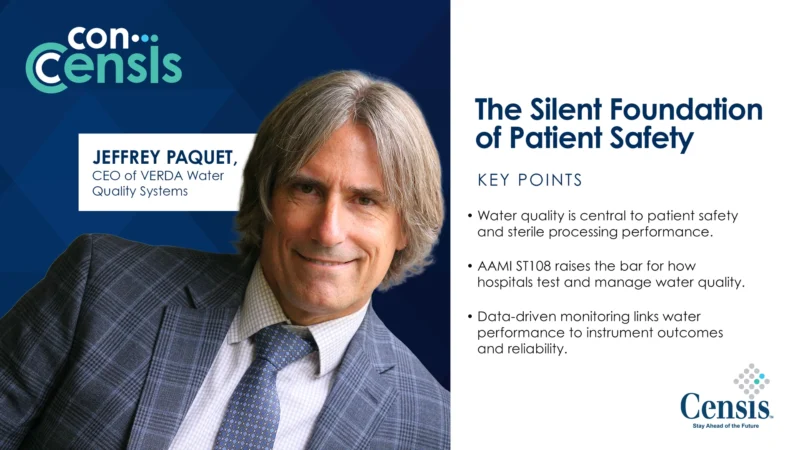How Censis’ AI-Powered Final Check Drives Compliance, Accuracy, and Confidence in Sterile Processing
Sterile processing teams are under constant pressure—handling growing surgical demands, working short-staffed, and navigating strict regulations—so getting every instrument tray assembled right the first time has never mattered more. Even a single assembly error can cascade into costly OR delays or, worse, compromise patient safety. Recent research highlights that most surgical instrument errors stem from failures in inspection and identification, and these mistakes frequently lead to operating room delays and wasted resources. In this climate, artificial intelligence tools are stepping in to help SPDs raise their quality benchmarks.
How can AI-powered verification like Censis’ Final Check feature transform the daily realities of sterile processing teams? And beyond efficiency, what impact does this technology have on compliance, staff morale, and hospital culture at large?
This episode of ConCensis, hosted by Daniel Litwin, the Voice of B2B at MarketScale, dives deep into these questions with guest Greg Warino, the Market Director of Central Sterile Processing at Mercy Health. Together, they explore how Final Check is reshaping workflows, reducing errors, and reinforcing trust across OR teams.
The key topics of discussion are…
-
Error reduction at scale: Since implementing Final Check, Mercy Health’s SPDs dropped tray indicator errors from 15–20 per month to virtually zero across three hospitals and a surgery center.
-
Compliance and confidence: Final Check provides photographic proof of tray accuracy, easing survey readiness and empowering technicians with verifiable documentation.
-
Culture shift and retention: By embracing cutting-edge AI, SPD teams report higher confidence, lower turnover, and renewed trust from perioperative staff.



